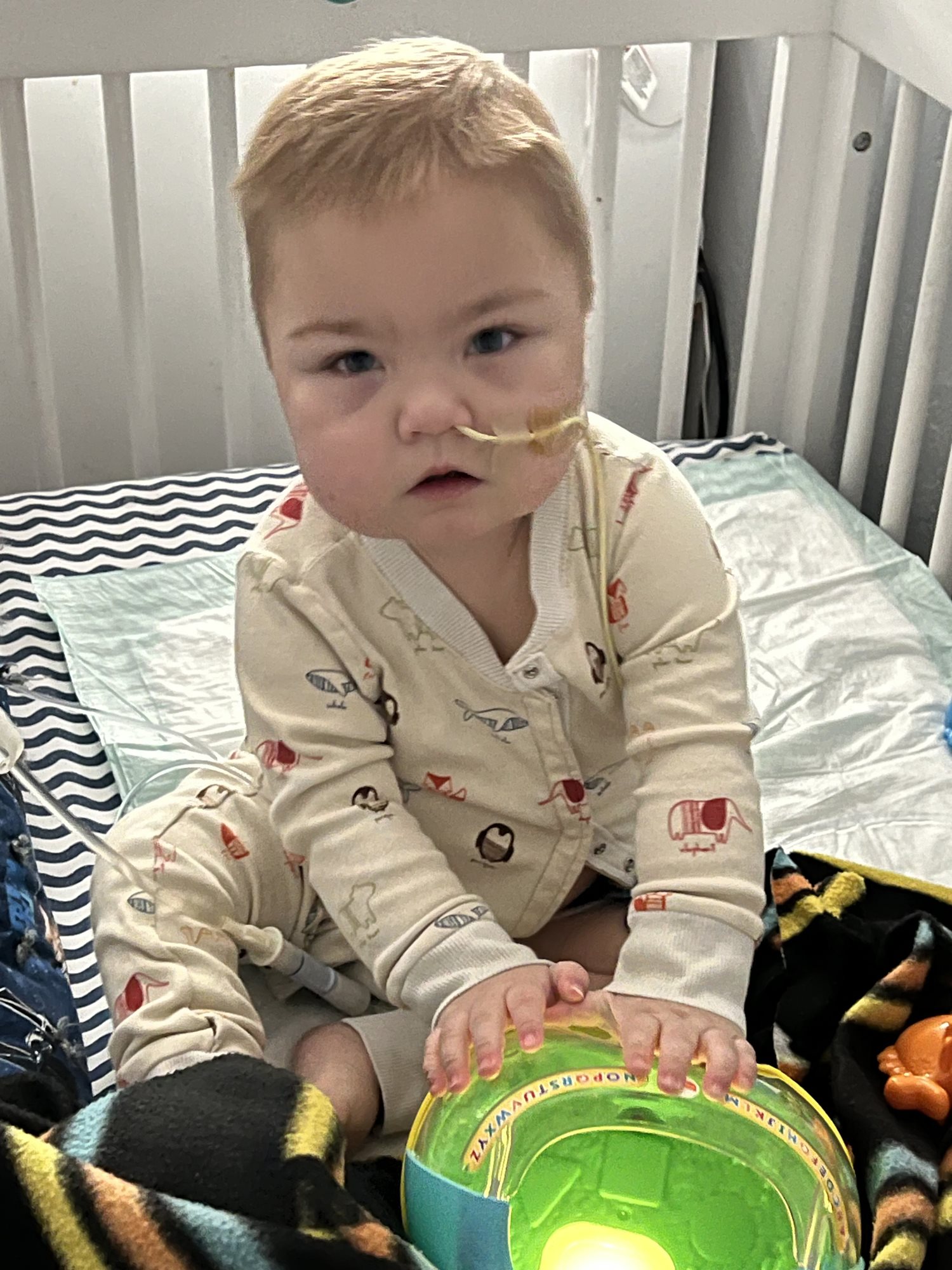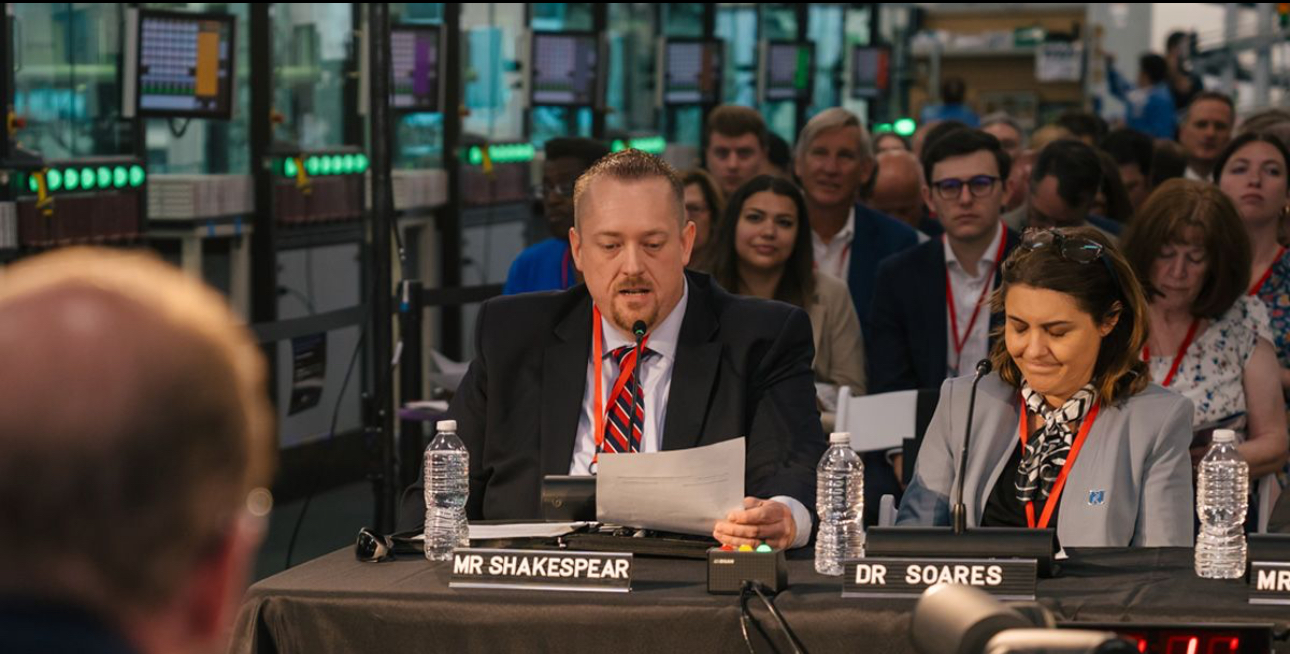Anything for a shot: Why we advocate for rural health access
 In his first three years of life, Kasey Shakespear’s son, Isaac, has overcome impossible odds. He was born with bilateral renal agenesis (BRA), which means his kidneys never developed – and this rare condition is considered universally fatal. But that didn’t stop Isaac from fighting for his life.
In his first three years of life, Kasey Shakespear’s son, Isaac, has overcome impossible odds. He was born with bilateral renal agenesis (BRA), which means his kidneys never developed – and this rare condition is considered universally fatal. But that didn’t stop Isaac from fighting for his life.
For his first six months, the Shakespear family relocated far from their home in rural St. George, Utah, to Palo Alto, Calif., to access life-saving dialysis treatments and medical care at Lucile Packard Children’s Hospital Stanford. This was after Shakespear and his family spent the three months prior in Pasadena, Calif., so Isaac could receive critical in-utero treatments to give him a fighting chance.
“It was already difficult to be in that situation, and then we had to add to that being so far away from home,” says Shakespear, who serves as executive director of the Rural Health Association of Utah. “I was having to travel back and forth for work and to get stuff ready for him to come home. It often left my wife on her own to take care of our two older children and still try to spend time with our son in the NICU. It was tremendously stressful.”
Even after returning to Utah, Isaac has continued to need regular specialist care – nephrologists, urologists, cardiologists, pulmonologists, neurologists, gastroenterologists, immunologists, and transplant surgeons – requiring four-hour trips in each direction to Salt Lake City. He is currently on the list for a kidney transplant, which will necessitate another lengthy stay in either Palo Alto or San Diego, as well as regular follow-up visits. The family is willing to do whatever it takes to give Isaac the care he needs, but the frequent travel and looming uncertainty regarding the timing of the transplant have taken a toll.
“There’s a lack of resources in St. George – there’s no dialysis facility for children, and any hospitalization requires a life flight to Salt Lake City because they can’t dialyze my son here,” Shakespear says. “The travel adds a layer of logistical nightmares. I can’t put my son in the hospital and come home to take care of my other kids because he’s four hours away, so it means we have to drop everything, pack up, and just be gone for those periods of time.”
"It’s understandable that the needs of the many often outweigh the needs of the few, but individuals in rural communities still deserve equitable access." – Kasey Shakespear |
Shakespear understands that his son’s condition is unique – he expects providers to be stumped when treating a child who is unlike anybody they’ve ever treated before, particularly since only approximately 20 children are known to have survived BRA. But his family’s struggles have given him a new appreciation for the challenges millions of people face every day trying to access health care in rural communities. In his role with the Rural Health Association of Utah, Shakespear has become an outspoken advocate for rural health care access, calling for the expansion of telehealth and home health as ways to help close gaps.
“It’s understandable that the needs of the many often outweigh the needs of the few, but individuals in rural communities still deserve equitable access,” Shakespear says. “Not everybody in rural has the background to be able to share their story. The role I’ve assumed in my career is trying to be the voice for people who don’t have one, be a champion for rural, and make sure rural is taken care of appropriately.”
 |
According to Shakespear, a key component of taking care of rural involves meeting residents where they are. For policymakers, that means understanding that rural life is a choice.
“People live in small towns for a reason,” Shakespear says, “such as wanting a slower pace of life or farming the same land their family has owned for more than a century.”
He emphasizes that any solution to rural health challenges needs to consider each community’s unique values to be effective – and this is often different than what works in urban or suburban areas.
"One of the biggest things I’ve seen in my career is a bit of a misunderstanding about what rural needs and how to approach that." – Kasey Shakespear |
“One of the biggest things I’ve seen in my career is a bit of a misunderstanding about what rural needs and how to approach that,” Shakespear says. “If you can’t find the right solution that meets rural needs and shows respect for their lifestyle, most of what you do is going to fall flat. Rural people are smart, they’re hard workers, and they have high values. You can’t apply urban solutions to rural communities.”
In his work, Shakespear is also vocal about the need for more preventive care in rural areas to proactively address access challenges. Rural residents – particularly farmers and ranchers – are known for putting their own needs last, particularly since it can be difficult to get in for appointments like cancer screenings. Shakespear calls this the “pull yourself up by your bootstraps, rub some dirt in it” culture – and he says it needs to change, as access is much easier when all that’s needed is a routine screening as opposed to life-saving care.
 |
“If you’re not feeling well mentally or physically, you don’t have to just push through it,” Shakespear says. “Get it checked out. Reach out for help. It’s a lot easier to deal with early rather than if it progresses. It’s not feasible to bring the entire health care system to every small town, but if we can prevent the need for some of these specialty services that will make a huge impact.”
Earlier this year, Shakespear shared his experiences on a national stage when he was invited to testify before the U.S. House Ways and Means Committee regarding health care innovations. He spoke passionately about how recently developed treatments helped his son regulate his blood pressure and grow lungs while he was still in the womb, as insufficient lung development is a leading cause of death for babies with BRA. He believes sharing success stories is an essential part of effective rural health care advocacy.
"With so many stories having an unhappy ending, I think it tends to make lawmakers and politicians feel hopeless. Being able to share stories where my son overcame impossible odds to survive shows that it is a possibility." – Kasey Shakespear |
“So many individuals in difficult situations don’t get the care they need and don’t make it,” he says. “With so many stories having an unhappy ending, I think it tends to make lawmakers and politicians feel hopeless. Being able to share stories where my son overcame impossible odds to survive shows that it is a possibility.”
Going forward, Shakespear doesn’t know whether his family will be home for the holidays, as he could get the call at any minute saying a kidney has become available for Isaac. Even as he navigates his own personal challenges, he hopes to continue looking for ways to help other rural people who, like his son, are survivors and would do anything for a solution.
“Don’t discount a patient’s willingness to do what they have to do to give themselves a chance,” Shakespear says. “Nobody should assume that people in rural areas aren’t willing to put in the effort or make sacrifices for a shot. Seeing that it is possible and knowing what lengths they’ll go to, we need to close gaps in care so they don’t have to go to such extremes.”
Follow along with Isaac’s journey on Instagram.
Share your rural health story
The most impactful advocacy tool you have is your story.
Talking about your community and experiences can help people identify with rural health issues and show the impact legislation and policy have on rural residents across the country.
You can educate decision makers, inspire other advocates to share their own experiences, and even encourage people in your community to get involved.
Consider registering for NRHA's 36th Rural Health Policy Institute and telling your rural health story through NRHA’s advocacy campaigns.
